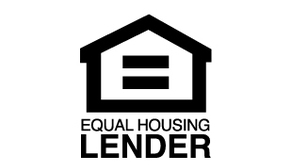First-time homebuyers often misunderstand the nuances of the home buying process. There’s a lot more to it than having the proper homebuyer credit and a sizable down payment at the ready. One slightly confusing step in the home buying process is understanding earnest money.
The simplest explanation of an earnest money deposit is that it’s a way for a home seller to take your initial offer seriously – and possibly give you an edge if a bidding war breaks out between you and another buyer. Earnest money deposits are standard practice between sellers and buyers, so here are the basic concepts to know ahead of time.
What is Earnest Money?
Earnest money is the amount you present to home sellers to prove that you’re interested in the property and serious about going through with the sale.
Sometimes, realtors and loan officers refer to earnest money as a “good faith deposit” since it shows a seller you plan to go through with the deal if the seller accepts your starting offer.
When a buyer and seller enter into a purchase agreement, the seller will take the home off the market while the entire process moves toward closing.
This purchase agreement will specify how much earnest money the buyer will provide to be held in escrow. During this period, the seller typically makes their home available for inspections and repairs.
If the buyer chooses not to move forward with the home purchase, the earnest money deposit will protect the seller as they will have to relist their home and begin the process anew.
However, if the deal falls through as a result of a failed home inspection then the buyer is allowed to recoup their earnest money deposit as it’s usually stated in the purchase agreement.
If you’re a first-time homebuyer, it may seem odd that you need to pay earnest money; however, home purchases in the U.S. have relied on earnest money deposits for quite some time.
The law may not mandate them, but earnest deposits are so common that not paying one is rare.
When you make an Earnest Money Deposit, Who Holds it?
The earnest money should never go directly to the seller. Instead, an escrow service, real estate attorney will hold on to the deposit. It’s actually common for many first-time homebuyers to forget about the earnest money held in escrow until closing day!
If you choose to use an escrow service, your earnest money will be safe with a third party until you need it to offset the mortgage’s closing cost.
The idea is to have a neutral party secure the money until it’s ready for a specific use, in this case, finalizing a real estate deal.
The entire purpose of an escrow service is to work on your behalf to secure the necessary funds to buy a home.
Usually, they’re private companies that may or may not focus on real estate transactions, so it’s good practice to inquire before choosing an escrow.
How can You Protect your Earnest Money Deposit?
Ideally, neither the seller nor the buyer can access the earnest money. If you could quickly get your hands on it, that would defeat the purpose of having a neutral party involved.
The escrow service, real estate attorney, or mortgage banker will protect your deposit and specify the conditions when the buyer or the seller could access the funds, if at all. Keep the following tips in mind when deciding where to take your earnest money:
- Earnest money should never be given directly to the seller.
- Choose a reputable third party to hold the earnest money, such as a legal firm, escrow company, or established mortgage company.
- Require a separately maintained escrow account.
- Request a receipt for your earnest money and keep it in your records.
- Refuse any authorized release of your earnest money until closing.
One situation that can lead to a refund is a home listing that isn’t accurate or legal from the start. There have been instances where the person selling the home wasn’t the actual homeowner!
In that case, you should receive a complete refund if the escrow agreement you signed specifies as much, as they usually do.
That’s why it’s so vital to review and understand the terms of a sales contract before agreeing to pay a single penny to “hold” a home for sale until a mortgage loan is in place.
The best advantage to having earnest money in escrow is that you can reclaim the money if you and the buyer can’t come to an agreement during final negotiations.
How Much Earnest Money is Necessary?
Technically, there is no set amount for an earnest money deposit. The general rule of thumb is that you should provide at least 1 – 3% in earnest money based on the property’s listing price, yet many first-time buyers choose to deposit more, some as much as 10 percent of the listing price.
Interestingly, state laws don’t require earnest money to begin a real estate deal, but it’s still a standard step.
The main benefit of paying more earnest money than the minimum amount is that it can give you a leg up during a bidding war. If you put more money in earnest, the seller may consider your offer first.
Usually, most homebuyers place about two to three percent of the home’s price in earnest money. But it’s absolutely critical to understand that earnest money is not the same as a down payment on a mortgage.
Instead, an earnest money deposit is an arrangement between you and the home seller; a down payment is an arrangement between you and the mortgage lender.
Can you Lose your Earnest Money Deposit?
It is entirely possible that buyers can lose the earnest money deposit if the terms of the purchase agreement are not followed. Purchase contacts vary from state to state, so it’s important to know the details concerning earnest money before you sign.
A standard purchase agreement will typically include a number of contingencies or conditions that need to be met in order for the home buying process to conclude with a final purchase. These contingencies can include:
- Home Inspection Contingencies – This allows buyers to back out of the agreement if something is discovered during the inspection process.
- Mortgage Financing Contingencies – This is a typical contingency to cover a buyer who is unable to secure a mortgage loan to complete the home purchase.
- Home Appraisal – An appraisal will verify that the property purchased is actually worth the amount that the buyer has agreed to pay. If not, this contingency allows the buyer to renegotiate or back out of the deal.
- Clear Title – Title contingencies allow a buyer to back out of a deal when a title company cannot verify that the property title is clear of any liens, disputes, or issues that can’t be resolved.
If a buyer decides to cancel the contract for any reason not covered under their contract contingencies, then the earnest money deposit is “lost” as it’s forfeited to the seller.
Earnest money essentially assures the seller that the buyer won’t cancel the contract without a valid reason.
Can you get your Earnest Money Deposit back after Closing?
The vast majority of homebuyers credit their earnest money to the home’s closing costs. Unfortunately, not many first-time buyers know that purchasing a home requires additional payments to finalize the terms.
Closing costs cover items like commissions, loan origination fees, title transfer fees for the seller, and other considerations.
The rule of thumb is that closing costs can reach as high as three to five percent of the home’s price tag, but if you already paid earnest money, that amount will be credited.
A and N Mortgage is Here to Answer Your Questions
Earnest money can serve to make a buyer’s offer more favorable to those who would not be willing to provide the deposit. In a competitive real estate market, buyers should take advantage of every asset that makes them stand out.
If you’re ready to put an offer on a home make sure you’re ready to pay an earnest money deposit. The good news is that you’ll be able to offset closing costs with the earnest money deposit.
If you have a question that demands a reliable, trustworthy answer, the experts at A and N Mortgage are here to help. If you’re interested in buying a home soon, please contact us today. We’d love to help you turn your dreams of buying a home into reality!
A and N Mortgage Services Inc, a mortgage banker in Chicago, IL provides you with high-quality home loan programs, including FHA home loans, tailored to fit your unique situation with some of the most competitive rates in the nation. Whether you are a first-time homebuyer, relocating to a new job, or buying an investment property, our expert team will help you use your new mortgage as a smart financial tool.







